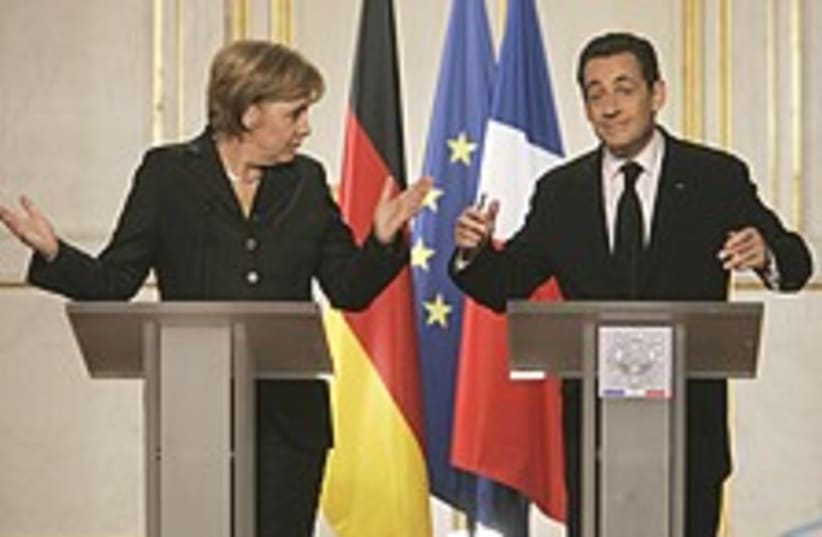An outbreak of old-fashioned war
Georgia's leader was accused of foolish provocation, but why does no one accuse the Dalai Lama of that?
The last time breaking news looked like a movie was 9/11. That should be a tip-off. The mega-apocalypse World Trade Center film was a real jihad attack on US soil, and Russian tanks rumbling into Georgia is the intrusion of naked reality into a presidential campaign that pits a lithe young Democrat floating on a cloud of mythology against a grizzly veteran whose wings were clipped in a real war.
The deceptively small-scale Russo-Georgian conflict, supposedly resolved by exquisite European diplomacy, reminds us that a sudden outburst of military brutality can threaten the integrity of a sovereign nation in the space of a few days. It will come as no surprise to learn that near unanimous public opinion in France blames the uppity Georgian President Mikhail Saakashvili for foolishly provoking a big, strong, heavily armed bully who has no scruples about striking back 100 to 1.
The French media - customarily hostile to the government - looked on with benign neutrality as Foreign Minister Bernard Kouchner went into peacemaking action, followed by President Nicolas Sarkozy's one-day negotiation of a theoretical cease-fire agreement. French officials and commentators studiously refrained from casting blame on Russia and, paradoxically, dismissed US President George W. Bush as a lame duck sitting on the sidelines.
Newscasts in the opening days of the conflict were deliberately confusing. Tanks and soldiers were not identified, burning buildings were not located, early Russian claims of 2,000 casualties in Southern Ossetia were indiscriminately relayed, separatist claims of the two disputed regions were taken at face value. However, as the violence intensifies and Russian forces display utter disregard for the terms of the cease-fire, reports from French journalists on the ground, visibly shocked by what they are seeing, have become more precise. Though Sarkozy intervened in his role as acting president of the EU, the East-West fissure immediately widened, with former Soviet satellites insisting on unambiguous recognition of Georgia's territorial integrity.
THE QUESTION is what can Europeans - united or divided - do about it? Russian Foreign Minister Sergei Lavrov says the world can forget about Georgia's territorial integrity. The French, absorbed by August vacations and inflated hopes for Olympic medals, would prefer to forget about Georgia altogether. Scenes of distressed refugees lugging mattresses were upstaged by the tears of former Olympic swimming champion Laure Manadou - a has-been at 21 - and the joys of gold medalists Steeve Guenot and Alain Bernard.
Prestigious print media, busy raking "Micha" over the coals for his ill-fated, impulsive adventure, have shown no interest in geopolitical analysis of the conflict. There is nothing comparable to Melik Kaylan's incisive exposé in The Wall Street Journal of Georgia's strategic importance as a vital node on the East-West North-South axis
The outbreak of old-fashioned war, just weeks after Barack Obama made a whirlwind foreign tour to show he knows his way around, clarifies the hope he inspires in European voters, who would give him a dictator's +80 percent score. They are dying to replace the detested Bush with this kinder, more humane, articulate emblem of diversity who will bring America back into the club of urbane civilized nations epitomized by Europe.
WHEN KNOW-IT-ALL Europeans are finally called upon to take leadership in dealing with troubles in their own backyard, all they have to offer is one-size-fits-all negotiations: Nobody is to blame, both armies should return to their previous positions, international peacekeepers will move in and hopefully the whole thing will slip back into the shadows.
This is the kinder more humane approach we are invited to adopt. It is based on an appealing bookish worldview that arranges messy reality into a static three-dimensional text in which the outcome of every action is totally obvious because it can be read on the following page. In the imaginary world of peace campers, hindsight is foresight. No threat is real unless it has already materialized - Saddam Hussein's Iraq in 2003, Mahmoud Ahmadinejad's Iran today - and once it does materialize it becomes the fault of George W. Bush and the Zionists. Bush was supposed to know in advance about 9/11, but no one told us last month to beware of Russian tanks on the make.
Waving Tibetan flags is a lot easier than getting involved in a mess in the Caucasus. While Georgian civilians cry their hearts out, the Dalai Lama tours French pagodas dispensing Buddhist teachings and reminding the world of human rights violations in Tibet. His visit is exploited by lightweights as a water pistol to spit in China's eye and a sash to beat the French president. Sarkozy has been treated as an unscrupulous coward because he didn't boycott the opening ceremony of the evil Chinese Olympics and now, to avoid offending the unforgiveable Chinese, he is not meeting with the saintly monk.
Would anyone dream of doing a hatchet job on the old bonze? In Le Monde for example? Would a snooty journalist ask why the old spiritual pinup is pulling at the sleeve of China's kimono right smack in the middle of the Beijing Olympics? What could he expect but more repression? You don't anger the Chinese dragon unless you've got a magic sword in your belt!
Above and beyond the choice of a president, American voters will be choosing between the illusion of international harmony - if only we all talk and listen to each other - and the reality of hostile powers that must be met with military force. Europe, especially France, has been a standing reproach to the American use of military might. And the Democratic Party has used this European scolding as leverage. Today we have a graphic illustration of the world as it is and the results that can be expected from dreaming it out of reality.
The writer is a freelance American journalist living in Paris since 1972.

